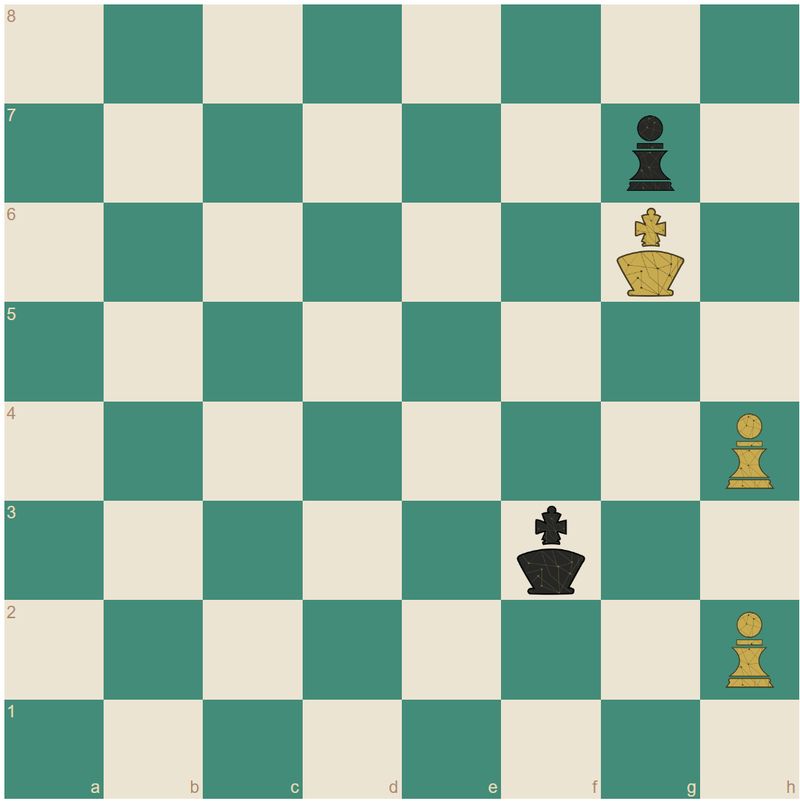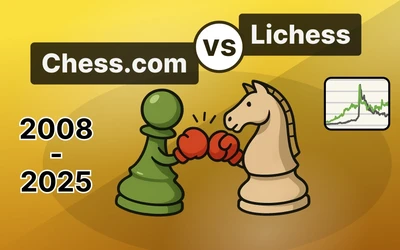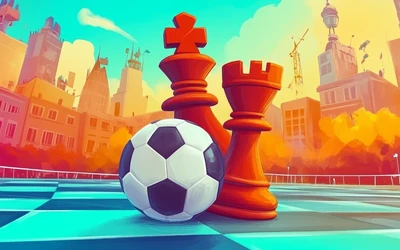
FM. Garri Pacheco
Decisive Vision: The Power of Mastering Theoretical Endgames
The endgame is not the conclusion... it’s the filter of mastery.Endgame Theory — This phrase has sparked various reactions over time, from players who consider it unimportant to those who find it so complex they have no idea how to improve in this crucial stage of the game. The truth is, in chess, no one escapes having to play an endgame, and whether it's complex or not, if we aim to reach a high level, we must take endgame study seriously. Before offering practical advice for studying this phase of the game, let’s look at examples that demonstrate the importance of mastering essential endgame concepts. Let’s start with a high-level experience:
This game shows that understanding theoretical endgame concepts is more important than we might imagine. In fact, going back to a recent case we analyzed, we can recall a famous composition by Nikolai Grigoriev that clearly illustrates the point:

White wins this position—take a few minutes to try solving it yourself. Naturally, the “shoulder check” will be essential to win this position. The seemingly logical 1. h5 is met by 1... Kg4 2. h3+ Kh4, leading to a draw. Playing 1. Kg5 doesn’t work either, because of 1... Kg2! 2. h5 Kh3 3. Kg6 Kg4! 4. h3+ Kh4 5. Kxg7 Kxh5, which also ends in an obvious draw.
Therefore, a combination of the “shoulder check” with precise calculation—essential in any kind of endgame—leads us to success:
1. Kf5! Shoulder check!
1... Kg2
If 1... Ke3, then 2. h5 Kf3 3. Kg5! wins, always bothering the opposing king.
2. h5 Kh3 3. Kg5!
Again, shoulder check! Playing 3. Kg6? would be a serious mistake due to 3... Kg4! 4. h3+ Kh4, drawing.
3... Kxh2 4. Kg6 +-.
Without a doubt, a true work of art that perfectly illustrates a vital concept applicable in many contexts. Going back to the main topic of this article—does it now seem clear that studying endgame theory is essential for those of us aspiring to chess mastery? If so, where to begin?
Practical Tips:
1. Order matters: Chess is studied in a very structured way, so it makes sense that theoretical endgames should be trained in a specific order. Start with King and Pawn Endings. First, learn the fundamental concepts such as opposition, the square rule, critical squares, breakthrough, and so on.
2. Study diligently: Don’t forget that chess is a science—without study, we go nowhere. Books like Practical Endgames (Paul Keres), Dvoretsky’s Endgame Manual (Mark Dvoretsky), or 100 Endgames You Must Know (Jesús de la Villa) are invaluable guides for theoretical and systematic learning of this stage of the game.
3. Study games by grandmasters: Watch how top players handle the endgame and try to understand their thinking and strategies. Great champions like José Raúl Capablanca, Anatoly Karpov, and Magnus Carlsen have delivered masterclasses in endgame technique.
4. Combine theory with practice: Apply what you learn in real games and analyze your mistakes to improve continuously. It’s no secret that through the analysis and self-critique of our own games, we can draw important conclusions and identify where we need to focus our efforts to improve.
5. The role of technology: Technology in chess isn’t just for playing online or studying openings. There’s plenty to take advantage of in the endgame phase too. Software like Chess Endings: Theory and Practice or Endgame Training offers great theoretical and practical insights. Also, on chess.com, the custom puzzles section allows filtering by endgame themes, giving us a vast and inexhaustible supply of exercises to help us recognize patterns and sharpen our endgame technique.
Remember, endgame study is an essential part of any player’s development. While openings and middlegames often grab students’ attention early on, it’s often endgame mastery that separates strong players from champions.
In short, dedicating time and effort to endgame study will not only improve your calculation skills, but also give you a deeper and more complete understanding of chess. With the right resources and consistent practice, any player can significantly improve their endgame performance—potentially transforming their results over the board.
This was just a small dose of awareness about the importance of studying endgames. The rest is in your hands!
You may also like
 ChessMonitor_Stats
ChessMonitor_StatsWhere do Grandmasters play Chess? - Lichess vs. Chess.com
This is the first large-scale analysis of Grandmaster activity across Chess.com and Lichess from 200… FM MathiCasa
FM MathiCasaChess Football: A Fun and Creative Variant
Where chess pieces become "players" and the traditional chessboard turns into a soccer field FM AjedrezdeSilicio
FM AjedrezdeSilicioHow to Keep Pace with the Evolution of Chess?
Adapting to modern chess means evolving along with the game. FM AjedrezdeSilicio
FM AjedrezdeSilicioThe Rook Pawn Revolution
In search of a crack in the opponent’s defense... FM AjedrezdeSilicio
FM AjedrezdeSilicioInfinite Analysis?: How to Avoid Technological Tilt
Beware of the obsession with finding “the perfect move” with the engine... FM AjedrezdeSilicio
FM AjedrezdeSilicio